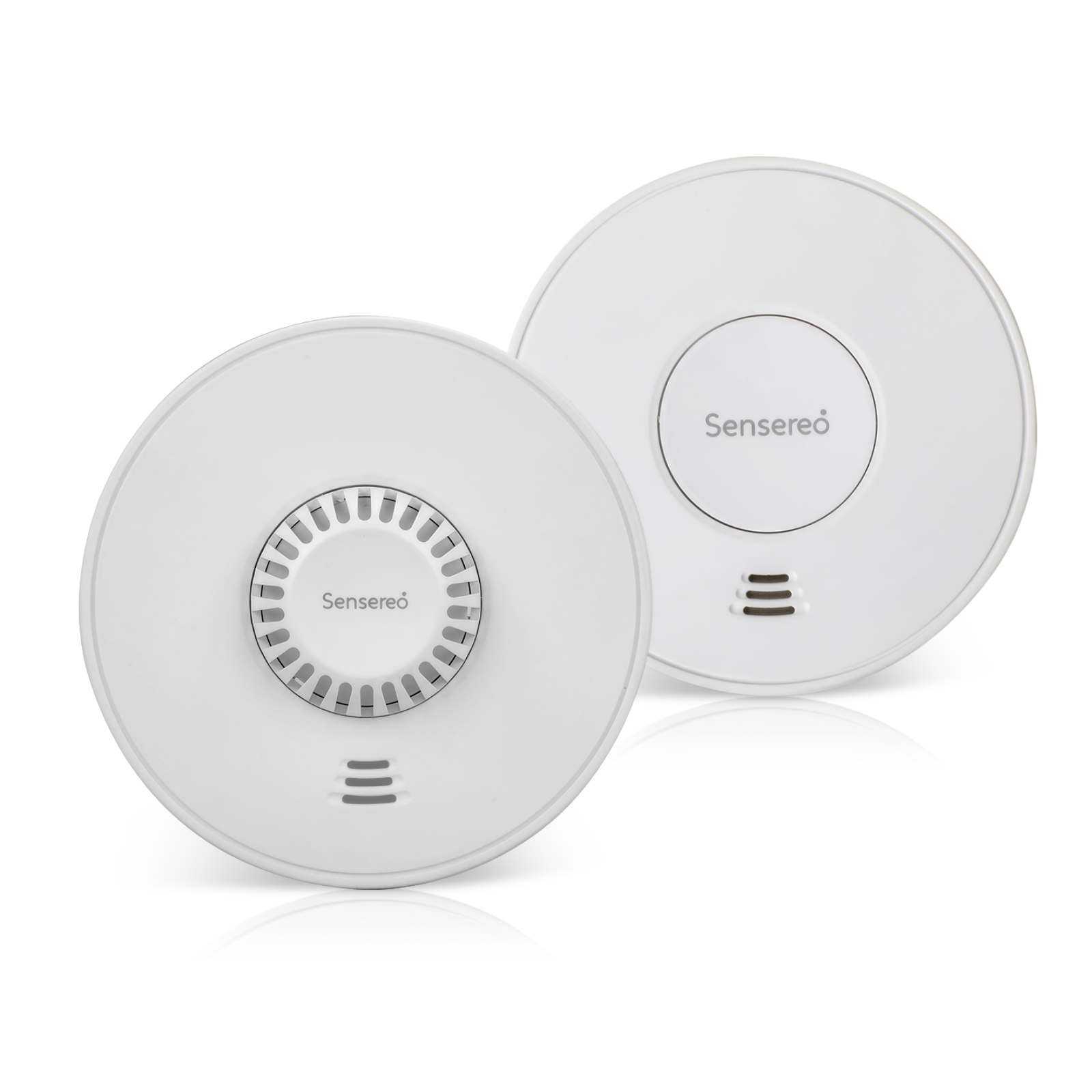I know that choosing between a wireless and a wired smoke alarm system can feel pretty challenging. So, I wanted to break down both types, focusing on stuff that really matters: reliability, how easy they are to install, and all the cool smart features you can get now. We’ll look at how wireless smoke alarms give you a ton of flexibility, while the good old wired systems are known for their stability. We’ll also dig into Thread devices and see how they’re making modern smart smoke detectors even better at keeping our homes safe. Whether you own your home, rent, or manage properties, my goal here is to help you make a solid decision on the smoke alarm systems that will actually work for you.
Smoke alarm systems are absolutely crucial for home safety, but the tech behind them can be surprisingly different. Getting a handle on these differences, especially with how smart smoke detectors fit into the picture, is the first step to making a choice you’ll feel good about.
How Wired and Wireless smoke Alarm Systems Work
| Aspect | Traditional Wired smoke Alarm Systems | Wireless smoke Alarm Systems |
| Connection | Connected via electrical wires to a central control panel | Communicate wirelessly using radio frequencies to a central hub |
| Power Source | Continuous power from home electrical wiring | Battery-powered |
| Communication Stability | Very stable with solid wired connections | Depends on wireless signals; modern tech like Thread enhances reliability |
| Flexibility | Fixed locations limited by wiring | Flexible placement anywhere within wireless range |
In Summary:
Traditional wired smoke alarms offer reliable, continuous power and stable communication but require professional installation. Wireless systems provide installation flexibility and use advanced mesh networking to enhance reliability and battery life, making them ideal for existing homes or rentals.

Smart Features in Modern Smoke Detectors
Today’s smoke alarms aren’t just noisy discs on the ceiling anymore. A lot of them now have smart features baked in, turning them into proper smart smoke detectors. These newer units can often tell the difference between different kinds of smoke (like burnt toast vs. a real fire), shoot alerts straight to your phone, and even link up with your other smart home gadgets. For instance, you can find smart smoke detectors that will automatically turn on the lights or unlock your doors if a smoke is detected, helping you get out safely. The use of Thread devices in these systems is a real game-changer for me. It provides a low-latency, self-healing mesh network, which basically means all your devices can talk to each other super efficiently and reliably, even if your Wi-Fi decides to take a break.
Reliability: Is a Wired or Wireless smoke Alarm Better?
When you’re picking a smoke alarm system, reliability is probably the number one thing on your mind. Both wireless smoke alarm systems and wired smoke alarms have their own strengths and weaknesses that affect how they perform over the long haul. Let’s walk through these so you can figure out what feels most dependable for your situation.
1. Signal Strength and Consistency Factors
Wired smoke alarms generally win when it comes to signal consistency. Because the communication is through a physical wire, it’s not really susceptible to outside interference. That said, they do have a weak spot: if a wire gets damaged somehow, that can be a problem. Wireless smoke alarm systems are way more flexible with installation, but things like thick walls, the distance from the hub, or even other wireless gadgets can sometimes interfere with the signal. However, technology has come a long way. Mesh networking, especially in smart smoke detectors that use Thread devices, has made a huge difference. It creates multiple communication paths, making the whole network stronger and much more reliable.
2. Power Source Reliability Considerations
Wired systems are plugged right into your home’s electrical grid, and they almost always have a battery backup just in case of a power outage. This means they’re pretty much always on. Wireless systems, of course, run on batteries, which means you’ve got to replace them every now and then. The battery life can vary, but most modern smart smoke detectors are designed to go for several years on a single set. Plus, low battery alerts are a standard feature, so you’ll get a heads-up long before they die.
3. Maintenance and False Alarm Prevention
For wired systems, maintenance is mostly about running tests and making sure the electrical connections are all good. False alarms with these are usually because of a sensor issue or maybe dust getting in. Wireless smoke alarm systems need similar testing, but you also have to keep an eye on those battery levels. The good news is that both wired and wireless smoke alarm systems have gotten much smarter about preventing false alarms. Many now use a combination of photoelectric and ionization sensors or fancy algorithms to tell the difference between cooking smoke and a real emergency. To make sure you can trust whatever you buy, I always recommend looking for that UL certification mark.
Sensereo is also actively developing a new model that meets UL 217 standards for the U.S. market, and will share updates once the certification process progresses.
Installation Insights and Smart Home Integration
The installation process is a huge point of difference between wired and wireless smoke alarm systems. This is especially true for homeowners and renters, and it really affects how easily you can get these systems talking to the rest of your smart home, particularly with all the new Thread devices popping up.
| Aspect | Wired Fire Alarm Systems | Wireless Fire Alarm Systems |
| Installation Complexity | Requires professional installation and wiring; can involve wall repairs and higher costs | Easy DIY installation; no wiring needed, minimal disruption |
| Flexibility of Placement | Limited by wiring layout; fixed locations | Highly flexible; can be placed anywhere within wireless range |
| Smart Home Integration | May require additional setup; limited by wiring and compatibility | Seamless integration with smart home hubs, especially with Thread-enabled devices |
| Communication Method | Hardwired connections provide stable, continuous communication | Uses radio frequencies and mesh networking (e.g., Thread) for reliable wireless communication |
| Suitability for Renters | Often impractical due to permanent wiring | Ideal for renters due to easy installation and removal |
Smart Home Connectivity Options
Modern smart smoke detectors are becoming a core part of the smart home. Many of them work with platforms you already use, like Google Home, Amazon Alexa, or Apple HomeKit. The inclusion of Thread devices in these detectors is a really big deal, as it gives them a reliable, low-power mesh network to chat on. This means your smart smoke detector can communicate flawlessly with your other smart gear, like a thermostat or security cameras, making your whole home feel more automated and secure. It’s worth looking into how you can build a fully integrated smart home around these.

Making the Right Choice for Your Home
At the end of this article, picking between wireless and wired smoke alarm systems really comes down to your specific situation, your property, your budget, and what you’re comfortable with. Both give you that essential smoke protection, but they each have advantages in different scenarios. No matter which you choose, I think we can all agree that smart smoke detectors are a major step forward for home safety.
Comparison Overview: Wired vs. Wireless smoke Alarm Systems
Let’s make a summary about what we have talked above. Here’s a quick sheet I put together to compare them at a glance:
| Feature | Wired Smoke Alarms | Wireless Smoke Alarm Systems |
| Installation | Tougher, needs a pro, punches holes in walls | Super easy, DIY-friendly, no mess |
| Cost (Initial) | Higher (paying for labor and wiring) | Lower (especially if self-installed) |
| Reliability | Extremely high, always has power | High, depends on batteries and mesh networks (e.g., Thread) |
| Power Source | Home electricity with battery backup | Batteries (can last up to 10 years, with alerts) |
| Best For | New construction, major renovations | Existing homes, apartments, rentals, quick installs |
| Integration | Often links with security panels | Seamless with smart home hubs (Thread, Matter) |
| Portability | Fixed, not portable | Totally portable, can take it when you move |
Cost Analysis: Initial vs Long-term Expenses
Upfront, wired smoke alarms will likely set you back more because of the professional installation costs, even if the detectors themselves are a bit cheaper. Wireless smoke alarm systems usually have a lower initial cost, but you do have to factor in buying new batteries down the road. Honestly, though, over the long term, both systems give you incredible value for the peace of mind they bring. Just remember, investing in smart smoke alarms of either type is what dramatically boosts your safety.
Best Solutions for Different Property Types
If you’re building a new home or doing a massive renovation, a wired smoke alarm system can be a fantastic, set-it-and-forget-it solution. But for most of us in existing homes, apartments, or rental units, wireless smoke alarms offer a level of ease and flexibility that’s hard to beat. They’re also perfect if you just want to add more coverage to your current setup without a big project.
Future-Indexing Your smoke Safety System
If you want to make sure your system stays relevant, I’d strongly suggest choosing smart smoke detectors, especially ones that use advanced connections like Thread devices and the Matter protocol. These devices can get updates over the air, which means they can get new features and improve over time. A system like this just blends right into a modern smart home, giving you alerts and control right from your phone.
Ultimately, whether you land on wired or wireless, the most important thing is that you have reliable smoke alarms. Make a habit of testing your alarms regularly, and choose a system that just plain works for your home and your life. To get that reliable, advanced smoke detection, it’s really worth exploring the smart options that are out there. Check here to have a glance at our economical and premium-quality product.




